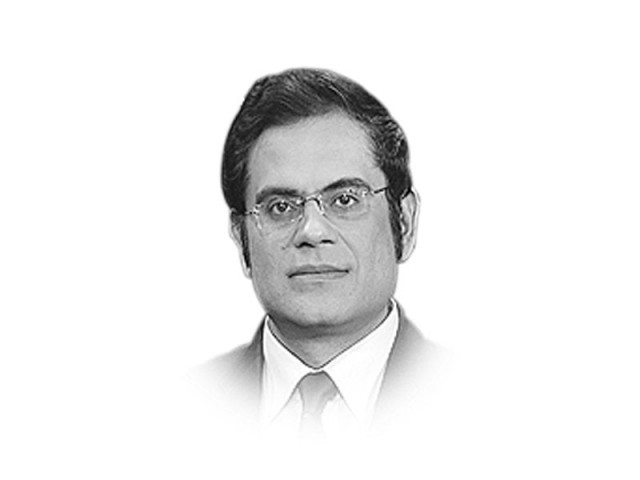Pakistan is not afraid of Modi’s win
For most Pakistanis, a BJP victory comes as a sort of validation of the contested Two Nation Theory.

The writer used to host a show on Express TV and works as a consulting editor at The Friday Times
Modi’s reputation as an efficient chief minister of Gujarat with better infrastructure, pro-investment policies, delivery of services is marred by his treatment of minorities and overplaying the Hindu nationalist card. For most Pakistanis, a BJP victory comes as a sort of validation of the contested Two Nation Theory. In public imagination, Modi is a Muslim-hater and a common Pakistani would secretly thank Mr Jinnah for creating a separate homeland. It is a separate matter that communalisation of politics since the early 1980s was fuelled by the Partition of 1947 and the trajectories of the two nation-states have turned them more and more exclusive in a political sense.
Many in Pakistan worry that there is much that BJP cadres and their ideological mentors — the zealots within the RSS and the VHP — would expect from a Modi win. It would mean ‘sounding’ and ‘acting’ tough on the ‘rogue’ neighbour. It might also mean that Kashmir’s special status may be reversed as the BJP manifesto suggests and that there may be the reversal of the ‘no-first-use’ doctrine with respect to nuclear weapons. This is what hyper-nationalism results in. The silver lining is that Modi’s focus is on reviving growth, investing in infrastructure and creating jobs for the huge numbers entering the job markets. During the election campaign, expanding trade also emerged as a priority of Mr Modi. Pakistan and India, despite the Herculean roadblocks and misgivings, have been working on that front with some success. During the last three years, trade volume has grown. Pakistan’s cabinet was considering granting of Non-Discriminatory Market Access to India and postponed its decision until there was a new government.
With a strong, Hindu nationalist government on its eastern border, what are the implications for Pakistan? Quite frankly, not more than what has been ailing the bilateral relations for the past decades. The unresolved disputes of Kashmir, Siachen, Sir Creek and water-sharing will be there. Petty politics and point scoring over holding bilateral dialogue will also continue. The two bureaucratic structures on both sides will continue to prevent visa liberalisation. If anything, Pakistan’s earlier experience with the Vajpayee Administration (during previous Nawaz and Musharraf tenures) was not all that bad. Prime Minister (PM) Nawaz Sharif found an engaging counterpart in Vajpayee. The BJP even did business with General Musharraf who will be remembered as the architect of an unnecessary Kargil misadventure.
Having said that, Modi is not Vajpayee. This is not 1999 or 2002. The US and Nato are withdrawing troops from Afghanistan and India is keen to make strategic inroads into Afghanistan. India-Pakistan proxy wars in Afghanistan may intensify in the short term. Pakistan suspects that India is fuelling the insurgency in Balochistan. Mumbai memory and snail-paced trials prejudice the Indian public opinion and provide hawks with a perfect excuse to advocate limited engagement. One of the key challenges for Modi would be to rescue India’s Pakistan policy (if there is one) from the stranglehold of the bureaucratic machine and media gurus who define and influence public opinion and the state’s policy choices.
In Pakistan, Nawaz Sharif is struggling for civilian ascendancy. His policy framework, with trade as a central plank, ironically converges with the stated intent of the BJP and its PM-designate — Modi. Pakistan’s PM and his younger brother view development from the infrastructure lens. The promise of bullet trains is a shared goal between Modi and Sharif. Perhaps, (if and) when they meet, they should talk about the need for bullet trains rather than buying more bullets than required.
Is Pakistan ready for this major shift in India? Good intentions may just not work for Islamabad. First and foremost, Pakistan needs a capable and dynamic foreign minister who enjoys the full confidence of the cabinet. Given the situation, diplomacy will have to be intensified for initial parleys on Afghanistan. It is surprising that even after year of taking office, a full-time foreign minister is missing. The rise of Abdullah Abdullah, a strong critic of Pakistan and representing the pro-India public mood in Afghanistan, may be the country’s next president. Unlike past challenges, this is a purely political and diplomatic battle. The people of Afghanistan voted in large numbers reposing their confidence in the democratic future of the country. Even in Pakistan’s strategic circles, there is a growing realisation that Pakistan will have to contend with the changed dynamics of Afghanistan and the folly to help reinstall the Taliban would face resistance.
PM Sharif has already called Modi and invited him to Pakistan. But the PM can’t delay the appointment of a full-time minister to take charge. Similarly, non-state actors would require taming at home. Another Mumbai is not an option. Trading with India can boost economic growth and create more jobs. By stabilising Afghanistan instead of playing strategic games there both India and Pakistan can benefit from the energy supplies from Central Asia. Engagement with Pakistan will help allay the fears of Indian Muslims after the landslide win of a ‘Hindu’ BJP. Will Modi prove to be a secularist in exercising power? Only time will tell.
Published in The Express Tribune, May 18th, 2014.
Like Opinion & Editorial on Facebook, follow @ETOpEd on Twitter to receive all updates on all our daily pieces.
















COMMENTS
Comments are moderated and generally will be posted if they are on-topic and not abusive.
For more information, please see our Comments FAQ